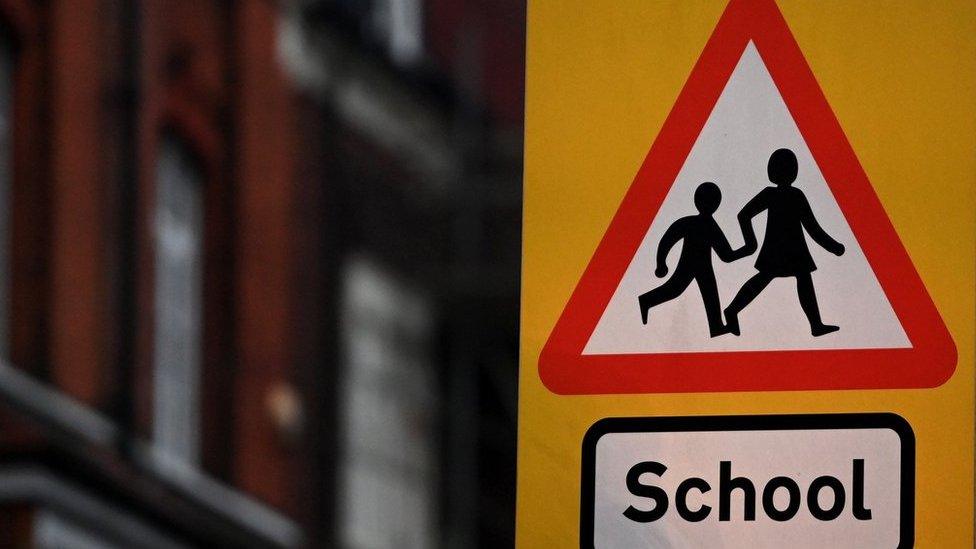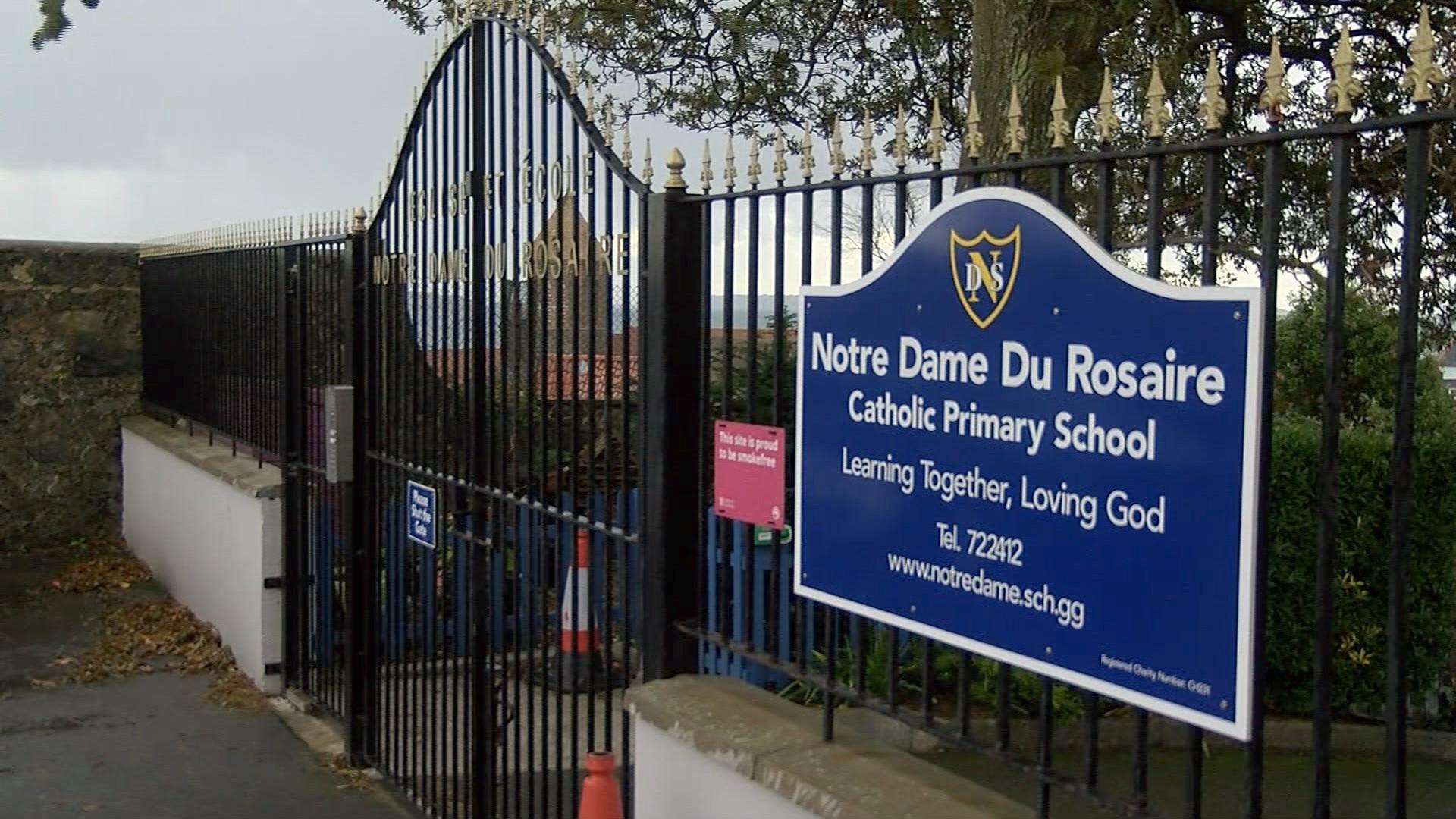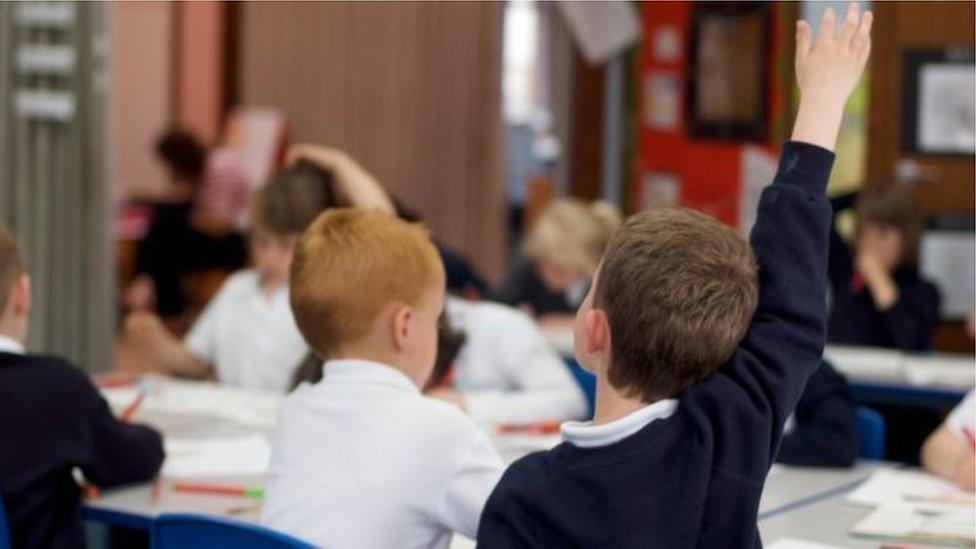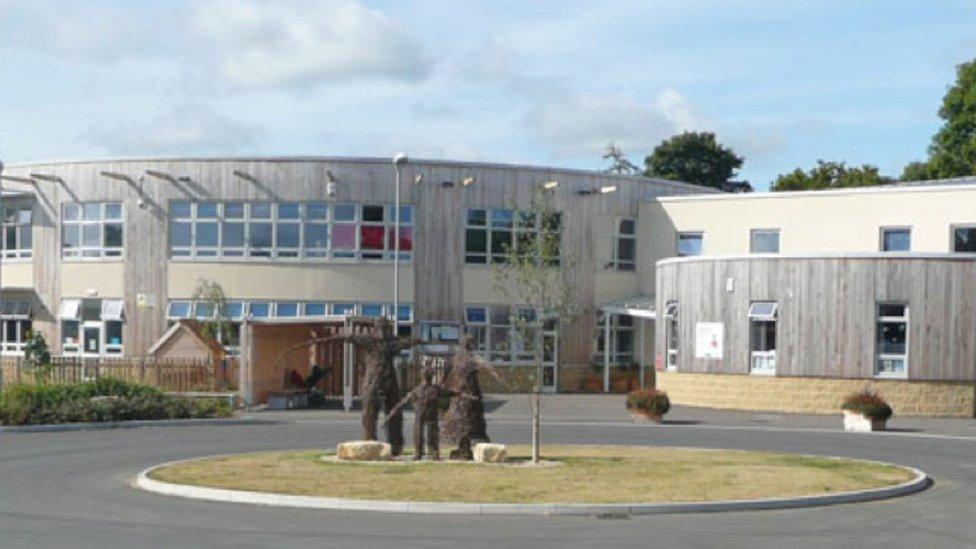Calls for fewer schools in Guernsey as pupil numbers fall
- Published

The Education Presidents said a primary review would have to wait for after secondary school reform.
Guernsey politicians have called for a primary school review as figures show there will be three fewer classes in September's reception intake.
La Houguette, Vale and Notre Dame Primary Schools have all reduced the number of reception classes.
Former Chief Minister Gavin St Pier believes it shows why the States needs to look at reducing the number of primary schools this term.
Education President Andrea Dudley-Owen said she "wants to review the sector".
But she highlighted a need to prioritise reforms to secondary education this term.
Overall, pupil numbers have dropped from 500 in 2022, to 491 in 2023, with Forest School set to welcome 13 pupils in reception from September.
In 2021 Guernsey's politicians voted to have a review of the island's primary schools in the next political term.
'Be realistic'
Ms Dudley-Owen said: "A review of primary education has been identified as necessary, by both our committee and our predecessors, however it has not been prioritised by the States for this term.
"As is well known, our committee's immediate priority is trying to ensure the delivery of the States-agreed solution for secondary and post-16 education.
"A review of primary education is needed, and I would like to see it carried out as soon as possible, we must also be realistic."
Former education member Deputy Peter Roffey believes the States was ready for a review this term, before it was pushed to the next term.
"There does need to be some sort of rationalisation, I suspect it would have to be La Houguette which closed, but I won't pre-empt any review."

John Fernandez BBC Guernsey Political Reporter Analysis
Politicians learnt a lesson from the closure of St Andrews Primary School - that closing a school, can be a career ender - just ask Robert Sillars.
At the start of this term ESC did a calculation, that it would need a lot of political capital to force through its secondary education reforms and that it probably didn't have enough to go for a potentially difficult battle in the primary sector.
The lack of resources, whether its money and officer time is also prescient here, as it would have inevitably been challenging to give what was needed to both projects in tandem.
But with the motto from the top-table remaining "there's no money left," a clearly inefficient primary sector in need of reform is just another reason for deputies in opposition to revenue-raising measures like GST, to say "you've not done enough to cut your own cloth".

Ms Dudley-Owen said the last education committee, which Mr Roffey served on, tried to do "too much in too little time".
She said: "It would be irresponsible and foolish to try to do all of these things at once and then fail to deliver."
Mr St Pier said "These numbers are no surprise at all. We've known for a number of years that primary school rolls are falling and we have too many places."
"The States was supposed to have reviewed this problem this term, so it could decide how the system needs to be rationalised. However, the current Assembly has for political reasons resolved to defer this difficult decision until the next term, which is a foolish mistake."
He said taxpayers are having to fund a "more expensive primary sector" as a result.

Follow BBC Guernsey on Twitter, external and Facebook, external. Send your story ideas to channel.islands@bbc.co.uk, external.
Related topics
- Published4 April 2023

- Published21 May 2022

- Published2 March 2023
